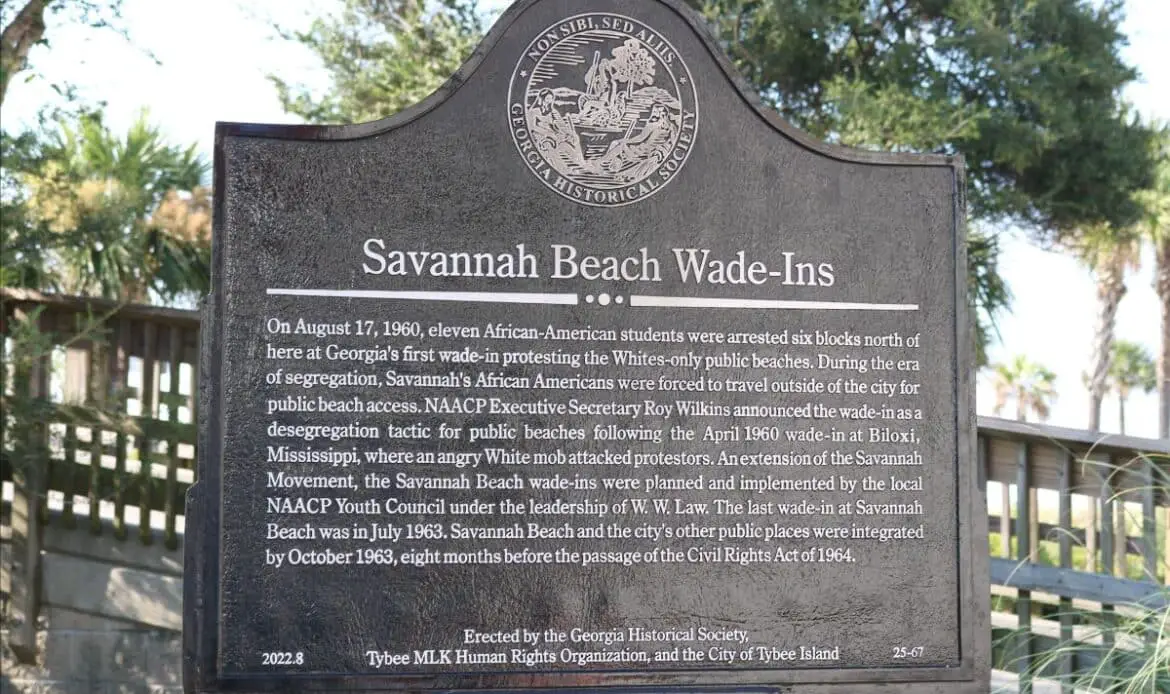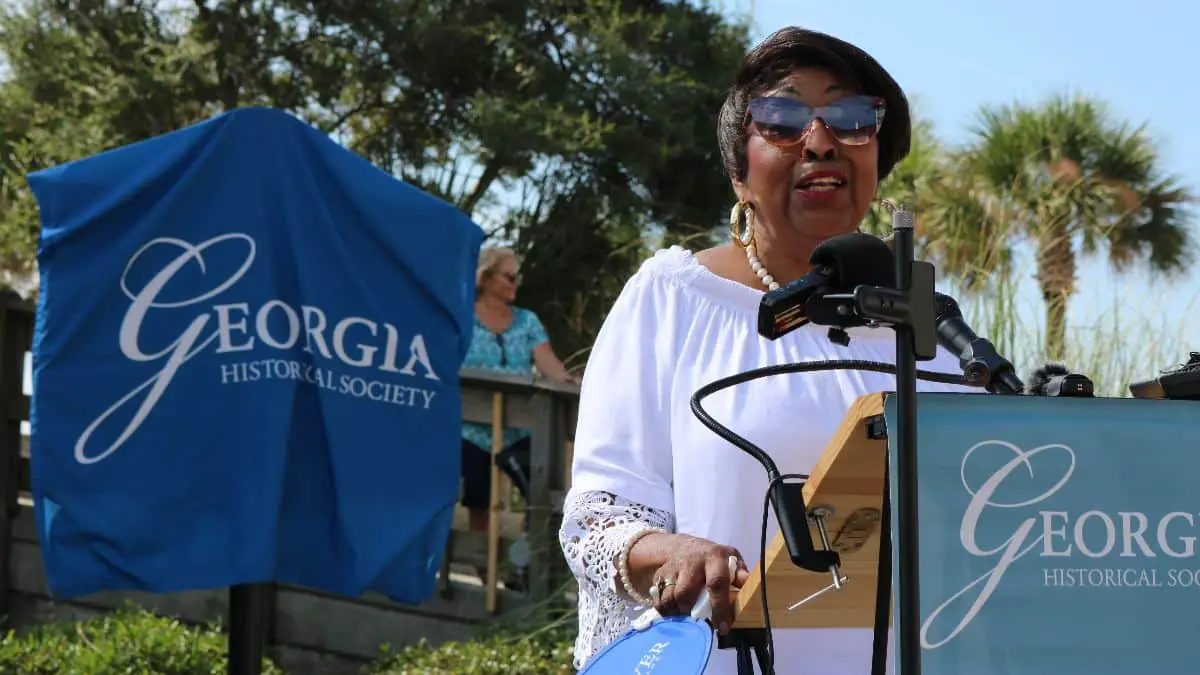In the summer of 1960, as the fight against segregation reached fever-pitch, African Americans were not allowed to be on the same beach as white people. As part of the fight for equal rights, several college students protested by staging a wade-in at the beach on Tybee Island.
On August 17, 1960, eleven college students were arrested at the first wade-in at Tybee Island.
The wade-ins would continue until July of 1963. One of the participants of the wade-ins was a woman named Edna Jackson, who would later become mayor of Savannah and a state representative.
To commemorate the wade-ins, The Georgia Historical Society, in conjunction with the Tybee MLK Human Rights Organization and the City of Tybee Island, dedicated a new historical marker about the wade-ins.
“The Georgia Historical Society is pleased to add the Savannah Beach Wade-Ins historical marker to the Georgia Civil Rights Trail,” said GHS Marker Manager Elyse Butler. “The historical marker illustrates how segregationist policies impacted every facet of life for African Americans. It shows how the fight for equal access to public accommodation was not limited to department store lunch counters, but also to outdoor spaces like parks, swimming pools, and in this case the beach.”
During the era of segregation, African Americans were denied access to Savannah’s Beach, Tybee Island, and were forced to travel outside the city for public beach access.
“The wade-ins deserve recognition because they help us realize that these events are an important part of Tybee’s history— a history that isn’t always remembered,” said Pat Leiby of the Tybee MLK Human Rights Organization. “It’s so important that the community has the knowledge that this tiny place was so significant as part of the larger Civil Rights Movement of the 1960s.”
The dedication took place at the Walter Park Pier and Pavilion on Tybee Island. In attendance were Dr. Todd Groce, President and CEO of the Georgia Historical Society; Pat Leiby, Community Organizer and Co-Chair of the Dedication Committee; Julia Pearce, Tybee MLK Human Rights Organization; the Honorable Shirley Sessions, Mayor of the City of Tybee Island; Allen Lewis, Vice President of the Tybee Island Historical Society and Co-Chair of the Dedication Committee; Charick Mance, Founder of the Mance Law Firm and President of the Savannah Chapter of the NAACP; Dr. Otis Johnson, former Mayor of Savannah; and the Honorable Edna Jackson, Georgia House of Representatives District 165 and former Mayor of Savannah.
Jackson gave the keynote address.
The marker text reads:
Savannah Beach Wade-Ins
On August 17, 1960, eleven African-American students were arrested six blocks north of here at Georgia’s first wade-in protesting the Whites-only public beaches. During the era of segregation, Savannah’s African Americans were forced to travel outside of the city for public beach access. NAACP Executive Secretary Roy Wilkins announced the wade-in as a desegregation tactic for public beaches following the April 1960 wade-in at Biloxi, Mississippi, where an angry White mob attacked protestors. An extension of the Savannah Movement, the Savannah Beach wade-ins were planned and implemented by the local NAACP Youth Council under the leadership of W. W. Law. The last wade-in at Savannah Beach was in July 1963. Savannah Beach and the city’s other public places were integrated by October 1963, eight months before the passage of the Civil Rights Act of 1964.

Get More Context: With the barrage of information coming through your social media feeds and phone notifications, it can be hard to get a clear picture of what’s happening in your community and throughout the state. Click here to see what else is happening in The Peach State and get your news in context instead of relying on social media feeds and notifications for your news. We’ll help you stay informed.







